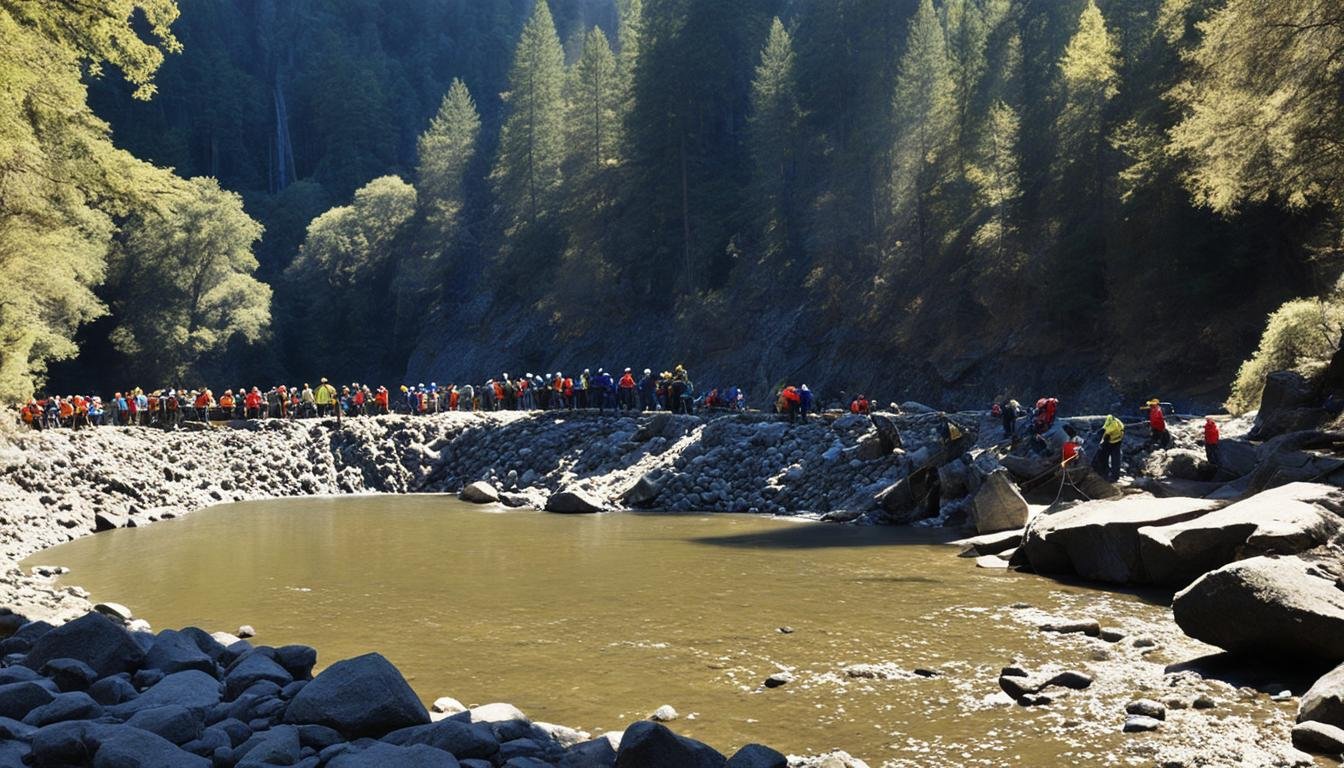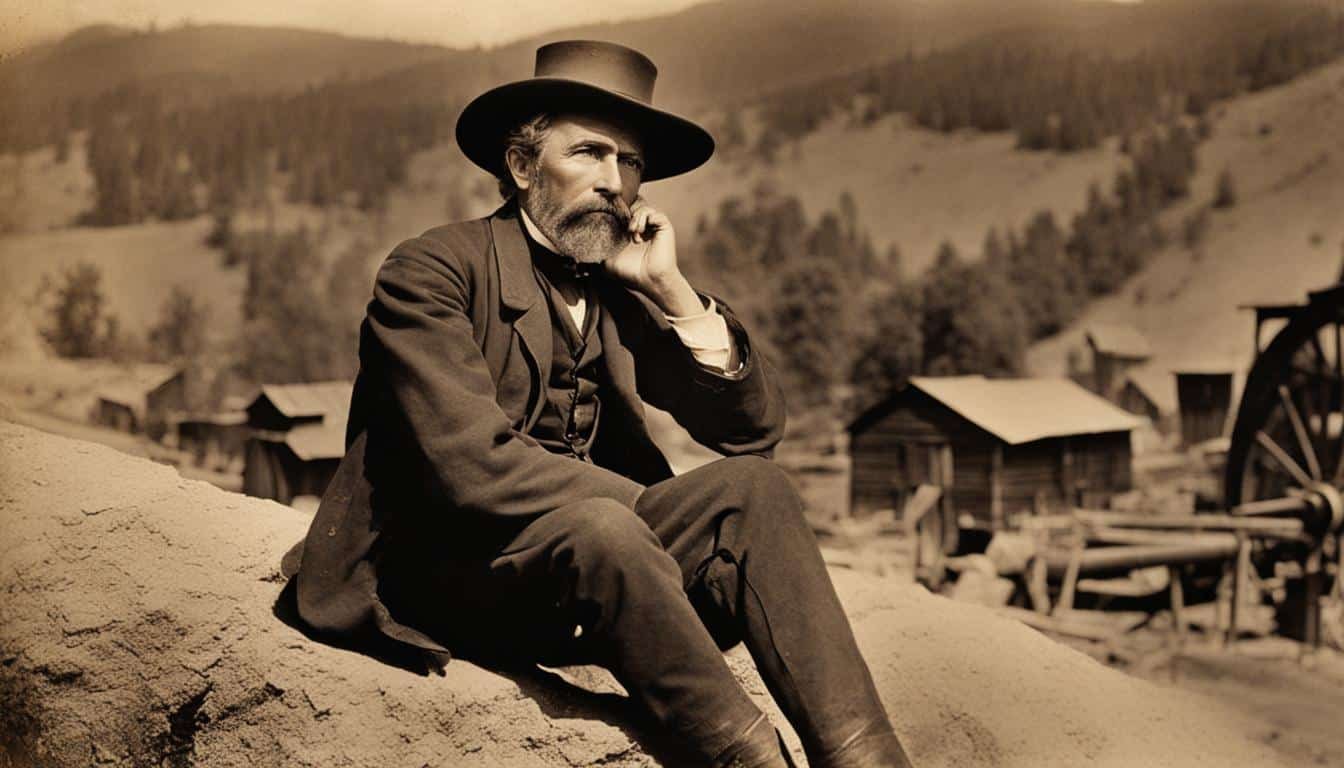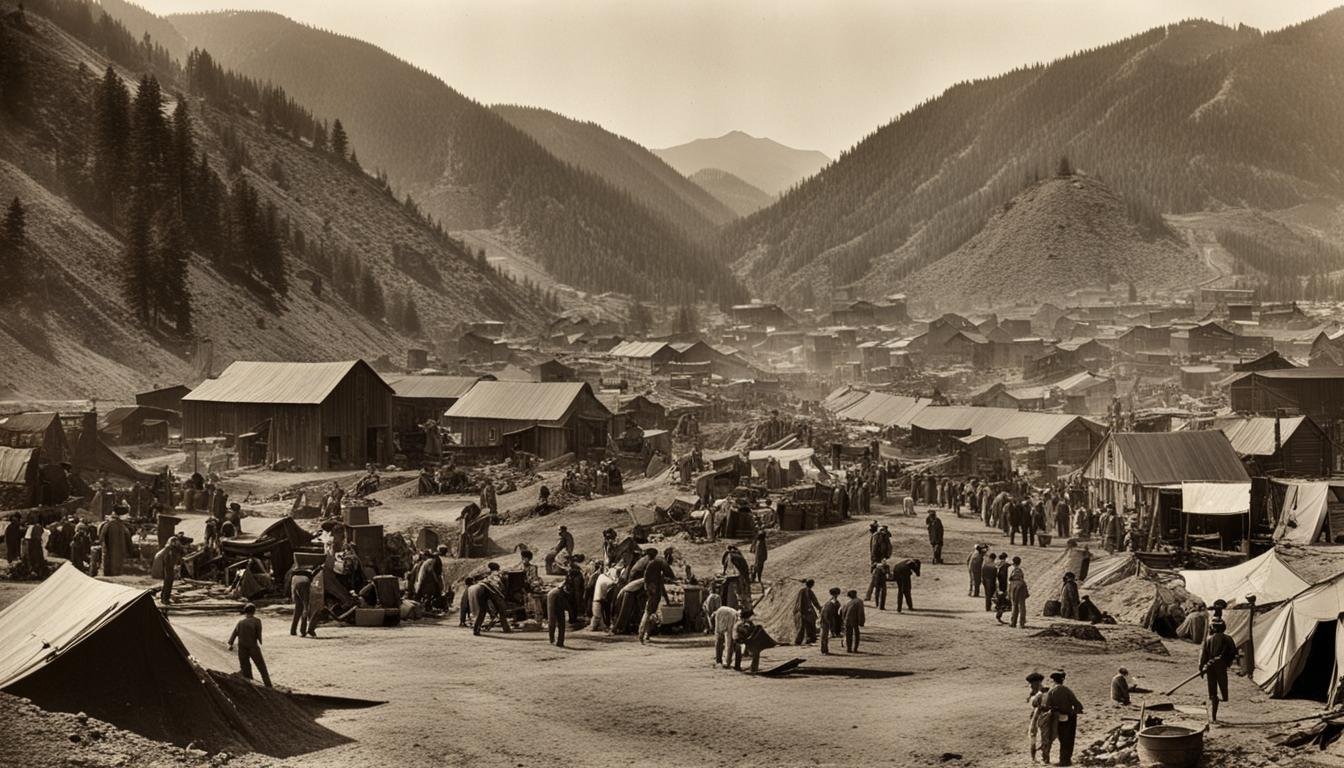It’s almost a story that sounds too wild to be real, isn't it? Imagine being the person on whose land gold is found, setting off one of the biggest rushes in history. That's exactly what happened to John Sutter, a man whose name became forever linked with the California Gold Rush. You might think such a discovery would lead to unimaginable wealth and lasting prosperity, but for Sutter, the reality was very, very different.
This whole situation, you see, turned out to be a rather cruel twist of fate for him. While countless others flocked to his property, Sutter’s Fort, to dig for riches, his own fortunes began to unravel. It’s a bit like finding a winning lottery ticket only to have it blow away in the wind, honestly. The very thing that made California famous also, in some respects, led to his downfall.
So, what exactly did become of John Sutter once the initial frenzy settled down? This article will explore the surprising and, frankly, tragic path his life took after the glittering discovery that changed the world. We will look at how the gold, instead of bringing him joy, brought a great deal of trouble and sorrow, quite literally.
- Who Is Touring With Alan Jackson
- Chase Stokes Y Madelyn Cline
- Michael Ojo
- Brewers Amy
- Spring Break Bikini Pics
Table of Contents
- Biography of John Sutter
- The Gold Discovery and Its Immediate Aftermath
- The Influx of Miners and Squatters
- Legal Battles and Land Claims
- Financial Ruin and Personal Hardship
- Attempts at Recovery and Seeking Justice
- Later Life and Final Days
- John Sutter's Legacy Today
- Frequently Asked Questions
Biography of John Sutter
John Augustus Sutter was born Johann August Suter in Kandern, Germany, in 1803. He was, you know, a man with big dreams, even if they didn't always pan out as he hoped. He actually came to America to escape debt and a somewhat difficult past in Switzerland, where he had been a shopkeeper and a soldier. He left his family behind, which, to be honest, tells you a little about his determination, or perhaps desperation, to start fresh.
He arrived in New York in 1834 and, after some travels, made his way west. He eventually reached California in 1839, which was then part of Mexico. He managed to convince the Mexican governor to grant him a large tract of land in the Sacramento Valley. This land grant, called Nueva Helvetia, or "New Switzerland," was where he aimed to build an agricultural empire. He truly had a vision, you know, for this new life.
Sutter established a thriving settlement, complete with a fort, farms, and workshops, which became known as Sutter's Fort. This place, in a way, was a hub for settlers and travelers coming into California. He had a reputation for being generous and helpful, and his fort became a very important stop for people arriving in the area. He was, in short, a significant figure in pre-Gold Rush California.
Personal Details and Bio Data
| Full Name | Johann August Suter (later John Augustus Sutter) |
| Born | February 23, 1803, Kandern, Grand Duchy of Baden (Germany) |
| Died | June 18, 1880, Washington D.C., USA |
| Nationality | Swiss (by birth), later American |
| Known For | Sutter's Fort, Gold Discovery Site (Sutter's Mill) |
| Occupation | Trader, Farmer, Landowner |
| Spouse | Annette Dübeld (Anna Sutter) |
| Children | Emil, Eliza, Anna, August, Louise |
The Gold Discovery and Its Immediate Aftermath
The pivotal moment, of course, arrived on January 24, 1848. James W. Marshall, who was building a sawmill for Sutter on the American River, found flakes of gold. Marshall, it's almost funny, was just doing his job, checking the millrace, when he spotted the shiny stuff. He brought it to Sutter, who, you know, tried to keep it quiet. They both understood the immense implications of such a find.
Sutter, in fact, initially tried to suppress the news. He wanted to finish his sawmill and protect his agricultural interests. He knew that a gold rush would disrupt everything he had worked so hard to build. He even made Marshall promise to keep it a secret, but, as we all know, secrets like that just don't stay hidden for very long, do they?
Despite Sutter's best efforts, word leaked out. A storekeeper in San Francisco displayed some of the gold, and soon, the news spread like wildfire. This was, in a way, the beginning of the end for Sutter's quiet, planned life. The discovery, which should have been his greatest triumph, really became his biggest problem.
The Influx of Miners and Squatters
Once the news of gold was out, a massive wave of people descended upon California. Thousands upon thousands of eager gold seekers, from all over the world, poured into the region. They didn't really care about land ownership or Sutter's plans; they just wanted to find gold. This was, you know, a completely chaotic situation that no one could have truly prepared for.
Sutter's carefully built empire began to crumble under the sheer weight of this human tide. His workers abandoned him to go prospecting, leaving his fields untended and his projects unfinished. His livestock were stolen, his crops were trampled, and his property was, more or less, overrun. It was, quite frankly, a complete disaster for his agricultural operations.
Miners and squatters set up camps directly on his land, without permission or payment. They saw the land as free for the taking, especially if it held gold. Sutter, who had once been a respected figure, found himself powerless against the sheer numbers and the overwhelming greed of the gold seekers. He was, in a way, just swept aside by the rush he inadvertently started.
Legal Battles and Land Claims
As California transitioned from Mexican to American rule, the issue of land ownership became incredibly complex. Sutter's Mexican land grants, which were the foundation of his wealth, were suddenly challenged. The new American government required landowners to prove their claims, and this process was, you know, very, very lengthy and expensive.
Sutter spent years and a huge amount of money trying to defend his land in court. He filed numerous lawsuits against squatters and those who challenged his titles. These legal battles drained his resources, both financially and emotionally. He was, quite frankly, constantly fighting just to hold onto what he believed was rightfully his.
Despite some initial victories, many of his claims were ultimately denied or reduced. The legal system, it seemed, was not always on his side, or perhaps it just wasn't equipped to handle the unique situation created by the Gold Rush. This whole legal struggle was, in a way, a relentless assault on his peace of mind and his remaining assets. You can learn more about the legal challenges faced by landowners during this period.
Financial Ruin and Personal Hardship
The combination of lost labor, stolen property, and crushing legal fees pushed John Sutter into deep financial ruin. He had been a wealthy man, or at least a man with significant assets, before the Gold Rush. After it, he found himself burdened with immense debt. He had to sell off much of his remaining property, including parts of Sutter's Fort, just to stay afloat, basically.
His grand agricultural plans were utterly destroyed. The very land that held the gold, the land he had hoped would sustain his family for generations, became a source of endless trouble and expense. He was, in a way, a victim of his own good fortune, if you can even call it that. It’s a pretty sad irony, honestly, when you think about it.
The personal toll was also immense. Sutter faced constant stress, disappointment, and public humiliation. His family, who eventually joined him in California, also suffered from his declining fortunes. He was, quite simply, a man whose life was turned upside down by an event that brought prosperity to so many others. It’s a very stark reminder that not everyone wins, even when the stakes are high.
Attempts at Recovery and Seeking Justice
Even after losing so much, John Sutter did not give up entirely. He tried to rebuild his life and seek some form of compensation for his losses. He believed that the U.S. government owed him for the disruption caused by the Gold Rush, especially since his land grants were valid under Mexican law. He tried, you know, to get a fair hearing.
He petitioned Congress multiple times, seeking restitution for the damages he had suffered. He argued that the government should recognize his original land claims and compensate him for the property that was taken or destroyed by the influx of miners. He spent years lobbying politicians in Washington D.C., trying to make his case. This was, in a way, his last great fight.
While he did receive a small pension from the state of California in his later years, it was a mere fraction of what he believed he was owed. His attempts to gain significant compensation from the federal government were, unfortunately, largely unsuccessful. He was, quite frankly, a man who felt deeply wronged by the very system that benefited from his discovery.
Later Life and Final Days
By the 1860s, John Sutter was a broken man, both financially and spiritually. He had moved away from the Sacramento area, seeking a quieter life. He settled in Lititz, Pennsylvania, with his wife, far from the chaos of California. He spent his final years there, still, you know, holding onto the hope of justice from Congress.
He continued to visit Washington D.C., even as his health declined, to press his claims. He was a familiar figure in the halls of Congress, a reminder of the Gold Rush's human cost. He would talk about what happened, about how his life was ruined, and, to be honest, it was a trip down memory lane for him every time, but a very sad one.
John Sutter passed away in Lititz, Pennsylvania, on June 18, 1880, at the age of 77. He died without ever receiving the substantial compensation he felt he deserved. His death, in a way, marked the quiet end of a life that had been anything but quiet, a life dramatically shaped by the glitter of gold. Learn more about American history on our site, and link to this page for related articles.
John Sutter's Legacy Today
Even now, John Sutter's story remains a powerful and poignant part of American history. He is remembered as the man on whose land gold was discovered, but also as a tragic figure who lost everything because of it. His fort, Sutter's Fort, has been restored and stands today as a state historic park in Sacramento, a physical reminder of his early ambition. It’s a place where you can, you know, really feel the history.
His experience serves as a stark reminder that sudden wealth, or the discovery of it, doesn't always lead to happiness or prosperity for everyone involved. Sometimes, it brings unforeseen consequences and immense hardship. His story, in some respects, is a cautionary tale about the unpredictability of fortune. It really makes you think, doesn't it?
So, when people ask, "What happened to John Sutter after the Gold Rush?", the answer is far from the simple success story one might expect. It's a complex narrative of ambition, discovery, loss, and the relentless pursuit of justice, even when it never quite arrived. His life, basically, illustrates how a moment of immense potential can turn into a lifetime of struggle.
Frequently Asked Questions
Did John Sutter ever get rich from the Gold Rush?
No, quite the opposite. While the gold was found on his land, John Sutter actually lost nearly everything he owned because of the Gold Rush. His workers left, his property was overrun by squatters, and his agricultural empire collapsed. He faced significant financial ruin and spent years battling in court, basically.
What happened to Sutter's Fort after the gold discovery?
Sutter's Fort was overrun by miners and squatters after the gold discovery. His operations there ceased, and much of his property was damaged or stolen. He eventually had to sell off parts of the fort and surrounding land to pay his debts. Today, the fort is a restored state historic park, which is pretty neat, you know.
Why did John Sutter lose his land?
John Sutter lost much of his land due to the massive influx of miners and squatters who disregarded his property rights. Additionally, his Mexican land grants were challenged under American law, leading to lengthy and expensive legal battles that he largely lost. This whole situation, in a way, was just a complete mess for him.
- Chapel From Return To Amish
- Koala In A Pouch
- Past Crossword Clue
- Vanna White Says Goodbye To Pat Sajak
- Self Reeling Hose Reel


